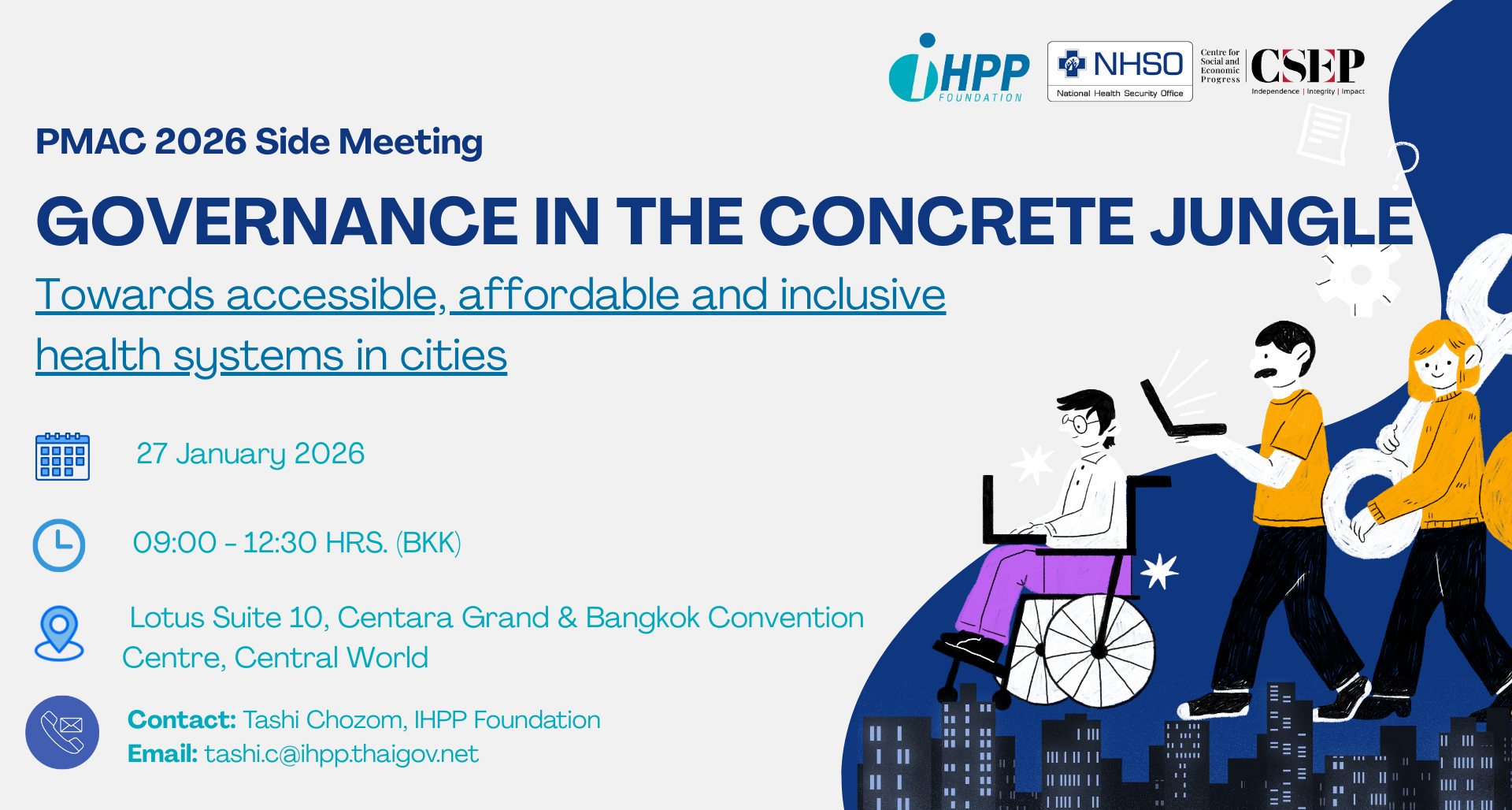Side Meetings
SMB217
Governance in the Concrete Jungle: Towards accessible, affordable and inclusive health systems in cities
27
Jan
- International Health Policy Program Foundation (IHPP), Thailand
- Centre for Social and Economic Progress (CSEP), India
- National Health Security Office (NHSO), Thailand

Urbanisation is reshaping global demographics, with over half the world now living in cities. While this transformation offers new opportunities, it also deepens health inequities—especially for the urban poor, who face overcrowded living conditions, insecure livelihoods, and limited access to essential services. Despite health improvements, evidence shows growing disparities in health outcomes between the urban poor and other populations. Inadequate healthcare infrastructure and systemic barriers contribute to unequal access, high out-of-pocket spending, and worsening multiple vulnerabilities in urban settings.
This session will explore key issues related to healthcare access for low-income urban households in selected countries across Asia. Specifically, it will focus on:
- How these households seek healthcare
- The financial burdens they face when accessing care
- Geographic barriers that affect access to services
- Structural factors, including governance, that influence healthcare access
Further, the session will review existing policies that alleviate or aggravate such inequities and discuss possible options that policymakers might like to consider to improve the urban health situation both inside and outside of health service systems.
- Explore care-seeking behavior and financial burdens: The session will explore how low-income urban households in selected Asian countries seek healthcare and the financial burdens they face.
- Analyze influencing factors: It will investigate how geographic and structural factors, including governance, shape these households' access to healthcare.
- Review existing policies: The session intends to review current policies that either alleviate or worsen health inequities in urban settings.
- Discuss policy options: A key objective is to discuss potential options that policymakers could consider to improve the urban health situation, both within and outside of traditional health service systems.

